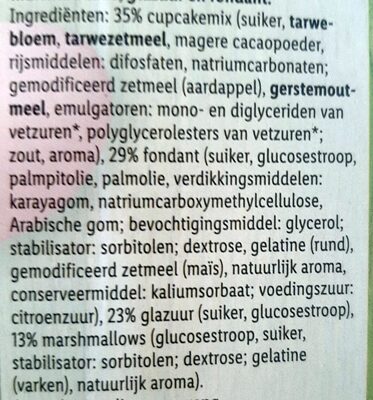Bakmix voor schaapjescupcakes met marshmallows, glazuur en fondant -
This product page is not complete. You can help to complete it by editing it and adding more data from the photos we have, or by taking more photos using the app for Android or iPhone/iPad. Thank you!
×
Barcode: 4056489217923 (EAN / EAN-13)
Categories: Cooking helpers, Pastry helpers, Baking Mixes
Countries where sold: Netherlands






